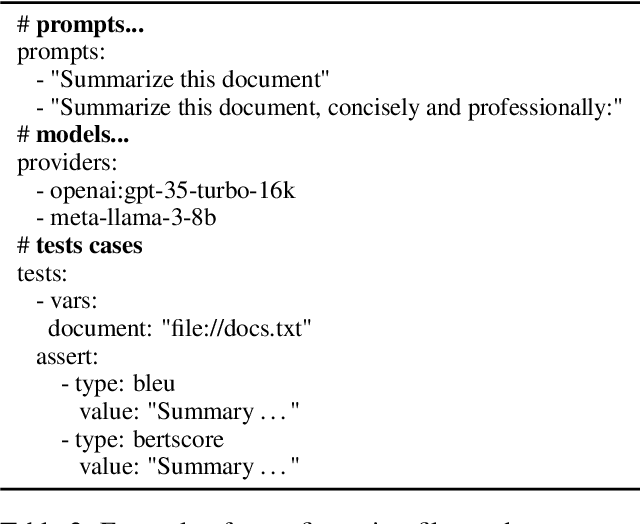Akash Maharaj
Federated Retrieval Augmented Generation for Multi-Product Question Answering
Jan 25, 2025



Abstract:Recent advancements in Large Language Models and Retrieval-Augmented Generation have boosted interest in domain-specific question-answering for enterprise products. However, AI Assistants often face challenges in multi-product QA settings, requiring accurate responses across diverse domains. Existing multi-domain RAG-QA approaches either query all domains indiscriminately, increasing computational costs and LLM hallucinations, or rely on rigid resource selection, which can limit search results. We introduce MKP-QA, a novel multi-product knowledge-augmented QA framework with probabilistic federated search across domains and relevant knowledge. This method enhances multi-domain search quality by aggregating query-domain and query-passage probabilistic relevance. To address the lack of suitable benchmarks for multi-product QAs, we also present new datasets focused on three Adobe products: Adobe Experience Platform, Target, and Customer Journey Analytics. Our experiments show that MKP-QA significantly boosts multi-product RAG-QA performance in terms of both retrieval accuracy and response quality.
HierTOD: A Task-Oriented Dialogue System Driven by Hierarchical Goals
Nov 11, 2024



Abstract:Task-Oriented Dialogue (TOD) systems assist users in completing tasks through natural language interactions, often relying on a single-layered workflow structure for slot-filling in public tasks, such as hotel bookings. However, in enterprise environments, which involve rich domain-specific knowledge, TOD systems face challenges due to task complexity and the lack of standardized documentation. In this work, we introduce HierTOD, an enterprise TOD system driven by hierarchical goals and can support composite workflows. By focusing on goal-driven interactions, our system serves a more proactive role, facilitating mixed-initiative dialogue and improving task completion. Equipped with components for natural language understanding, composite goal retriever, dialogue management, and response generation, backed by a well-organized data service with domain knowledge base and retrieval engine, HierTOD delivers efficient task assistance. Furthermore, our system implementation unifies two TOD paradigms: slot-filling for information collection and step-by-step guidance for task execution. Our human study demonstrates the effectiveness and helpfulness of HierTOD in performing both paradigms.
RETAIN: Interactive Tool for Regression Testing Guided LLM Migration
Sep 05, 2024



Abstract:Large Language Models (LLMs) are increasingly integrated into diverse applications. The rapid evolution of LLMs presents opportunities for developers to enhance applications continuously. However, this constant adaptation can also lead to performance regressions during model migrations. While several interactive tools have been proposed to streamline the complexity of prompt engineering, few address the specific requirements of regression testing for LLM Migrations. To bridge this gap, we introduce RETAIN (REgression Testing guided LLM migrAtIoN), a tool designed explicitly for regression testing in LLM Migrations. RETAIN comprises two key components: an interactive interface tailored to regression testing needs during LLM migrations, and an error discovery module that facilitates understanding of differences in model behaviors. The error discovery module generates textual descriptions of various errors or differences between model outputs, providing actionable insights for prompt refinement. Our automatic evaluation and empirical user studies demonstrate that RETAIN, when compared to manual evaluation, enabled participants to identify twice as many errors, facilitated experimentation with 75% more prompts, and achieves 12% higher metric scores in a given time frame.
MuRAR: A Simple and Effective Multimodal Retrieval and Answer Refinement Framework for Multimodal Question Answering
Aug 16, 2024



Abstract:Recent advancements in retrieval-augmented generation (RAG) have demonstrated impressive performance in the question-answering (QA) task. However, most previous works predominantly focus on text-based answers. While some studies address multimodal data, they still fall short in generating comprehensive multimodal answers, particularly for explaining concepts or providing step-by-step tutorials on how to accomplish specific goals. This capability is especially valuable for applications such as enterprise chatbots and settings such as customer service and educational systems, where the answers are sourced from multimodal data. In this paper, we introduce a simple and effective framework named MuRAR (Multimodal Retrieval and Answer Refinement). MuRAR enhances text-based answers by retrieving relevant multimodal data and refining the responses to create coherent multimodal answers. This framework can be easily extended to support multimodal answers in enterprise chatbots with minimal modifications. Human evaluation results indicate that multimodal answers generated by MuRAR are more useful and readable compared to plain text answers.
 Add to Chrome
Add to Chrome Add to Firefox
Add to Firefox Add to Edge
Add to Edge